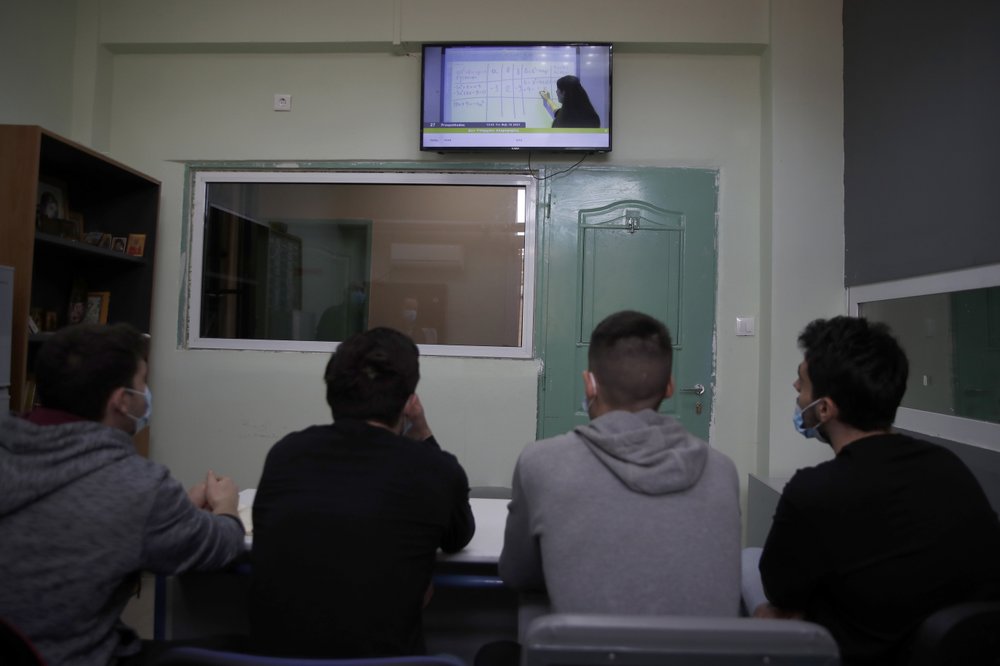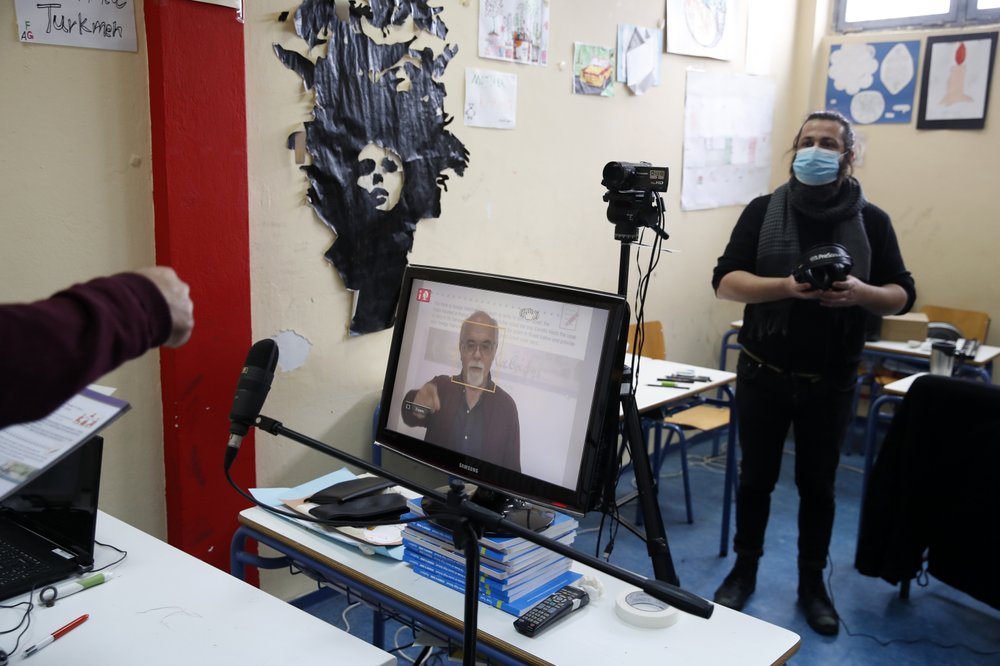Petros Damianos, Director of the school at Greece’s Avlona Special Youth Detention Center, was devastated when he heard his school would be closed due to the coronavirus lockdown.
The Avlona detention center, a former military prison, holds nearly 300 young men aged 18-21, and sometimes up to 25. The school Damianos founded there in 2000 now teaches primary grades through to college, following the national curriculum and awarding graduation certificates equivalent to any Greek school.
While attendance is voluntary, the prison school has grown in popularity and saw record enrollment in September, when up to 96% of inmates signed up.
“Essentially, our students are those who … before they got to prison, the education system expelled them,” Damianos told Ekathimerini. “These kids are kids we didn’t catch in time.”
But with internet devices banned in their cells, the prison’s students had no way to continue learning when the lockdowns cancelled classroom lessons.

“Our teachers couldn’t reach the kids like they reach all other kids in Greece,” Damianos said. “This was a big problem, a very big problem that seemed almost insurmountable.”
Desperate for a solution, Damianos had an idea: he could reach his students through the televisions in their cells if he could figure out how to create a dedicated TV channel to broadcast their classes.
Technician friends told Damianos it was possible with the necessary equipment. The next hurdle was obtaining the equipment with shops also closed during the nationwide lockdown. Then the school’s staff had to learn how to use it.
The school’s music teacher, Nikos Karadosidis, took on the role of technician, using experience from occasional concert tech work and guidance gleaned from YouTube tutorials.
“I very quickly realised – and this is the magic of it, too – that this whole thing is essentially DIY,” Karadosidis said. “Do it yourself, with whatever materials you have, with whatever tools you have, to try to do the best you can.”

Through donations, volunteers and online orders, the staff cobbled together what they needed. A critical piece of equipment – a modulator to transmit the TV signal – ran into delivery delays, so a store lent them an older one. Two hundred meters (feet) of cable arrived, and inmates helped run it from the school to the prison’s central aerial.
One prison classroom was converted into a rudimentary studio, with a cheap hand-held video camera taped to a tripod. Multicolored Christmas lights served as a makeshift recording light, warning those outside to keep quiet during recording sessions.
On January 8, about a month after Damianos had the idea, the channel was ready. They named it Prospathodas TV, Greek for “Trying TV.” Through word of mouth, they got inmates to re-tune their televisions to capture the new channel.
The pilot program was a half-hour math class. Now the channel operates 24 hours a day, running six hours’ worth of pre-recorded lessons on a loop on weekdays, and eight hours of content on a loop on weekends.
The teachers record new lessons daily: from math and handicrafts to economics and music. Karadosidis edits into the night and broadcasts the classes the next day, since live broadcasts are still beyond their technical capabilities.

A 21-year-old prison inmate, who earned his high school diploma in Avlona, says the TV channel has become quite popular.
“You run out of (cigarette) filters and you go into the next cell to ask for a filter, and you see five big guys battling with their little paper strips trying to make purses,” M.S, an inmate who can only be identified by their initials under prison regulations, said.
“Then you go to the next cell later, and someone’s trying to solve an equation.”
Once the pandemic is over, Damianos would like to expand the channel to include documentaries and other worthwhile programs. But while it’s plugging a hole in education and maintaining contacts between students and teachers, he stresses that televised lessons can’t deliver what in-person classes do.
“Let’s be honest, the channel can’t replace the education that takes place in school,” Damianos said. “It is very important, but it’s not enough.”
Source: AP News.


